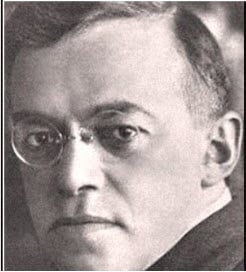
As the Jewish community recently observed the significant holidays of Rosh Hashanah, Yom Kippur, and Sukkot, a collective sigh of relief was felt with the return of hostages held by Hamas. The U.S.-designated terror group had captured these individuals, and their release was met with jubilation among Jews worldwide. Celebrations ensued, marked by dancing, singing, and heartfelt prayers—a stark contrast to violence.
The release of the hostages was a moment of joy, yet it underscores ongoing concerns about safety and anti-Semitism. The Jewish community continues to grapple with threats, both physical and ideological, that challenge their security and identity.
The Threat of Anti-Semitism
Despite the joyous return of the hostages, the specter of anti-Semitism looms large. Reports indicate that over 75% of Jews have felt threatened, a statistic that highlights the pervasive nature of this issue. Incidents of violence and discrimination against Jews are alarmingly frequent, prompting questions about safety and acceptance in society.
According to a recent study,
“Thousands of attacks on Jews have been documented, raising concerns about the rise of anti-Semitic sentiments globally.”
This increase in hostility has left many in the Jewish community questioning their visibility and safety in public spaces.
University Influence and Ideological Battles
The discussion around anti-Semitism extends into educational institutions, where funding from foreign entities like Qatar has sparked controversy. Critics argue that this financial influence has led to the hiring of educators who may propagate biased views, potentially fostering anti-Semitic ideologies among students.
Experts warn that
“The influx of foreign funding into universities can lead to the dissemination of ideologies that are not aligned with democratic values.”
This concern is particularly poignant in the context of Jewish students who may feel alienated or targeted within these academic environments.
Historical Context and the Call to Action
The Jewish community’s resilience is rooted in a painful history of persecution. The phrase “Never Again,” popularized by Zionist leader Zeev Jabotinsky, serves as a rallying cry for proactive defense and advocacy. Jabotinsky’s words,
“If you don’t take your security into your own hands, someone else—or circumstances—will decide it for you,”
resonate as a call to action.
In light of recent events, many Jews are embracing this ethos, advocating for their rights and safety. The community is urged to remain vigilant and vocal, ensuring that their voices are heard in the fight against anti-Semitism.
Looking Forward: A New Year, A Renewed Resolve
As the Jewish New Year unfolds, the return of hostages offers a moment of hope. However, the underlying issues of safety and acceptance remain pressing. The community is reminded that while the war in Gaza may have ended, the battle against anti-Semitism continues.
For those who were held hostage, the journey to recovery is just beginning. Despite their return, the psychological scars of captivity linger, compounded by the reality of being Jewish in a world where anti-Semitism persists.
The Jewish community stands at a crossroads, faced with the choice to either remain passive or actively combat the threats they face. As they celebrate the return of their loved ones, they are also reminded of the importance of unity and advocacy in ensuring a safer future for all Jews.





